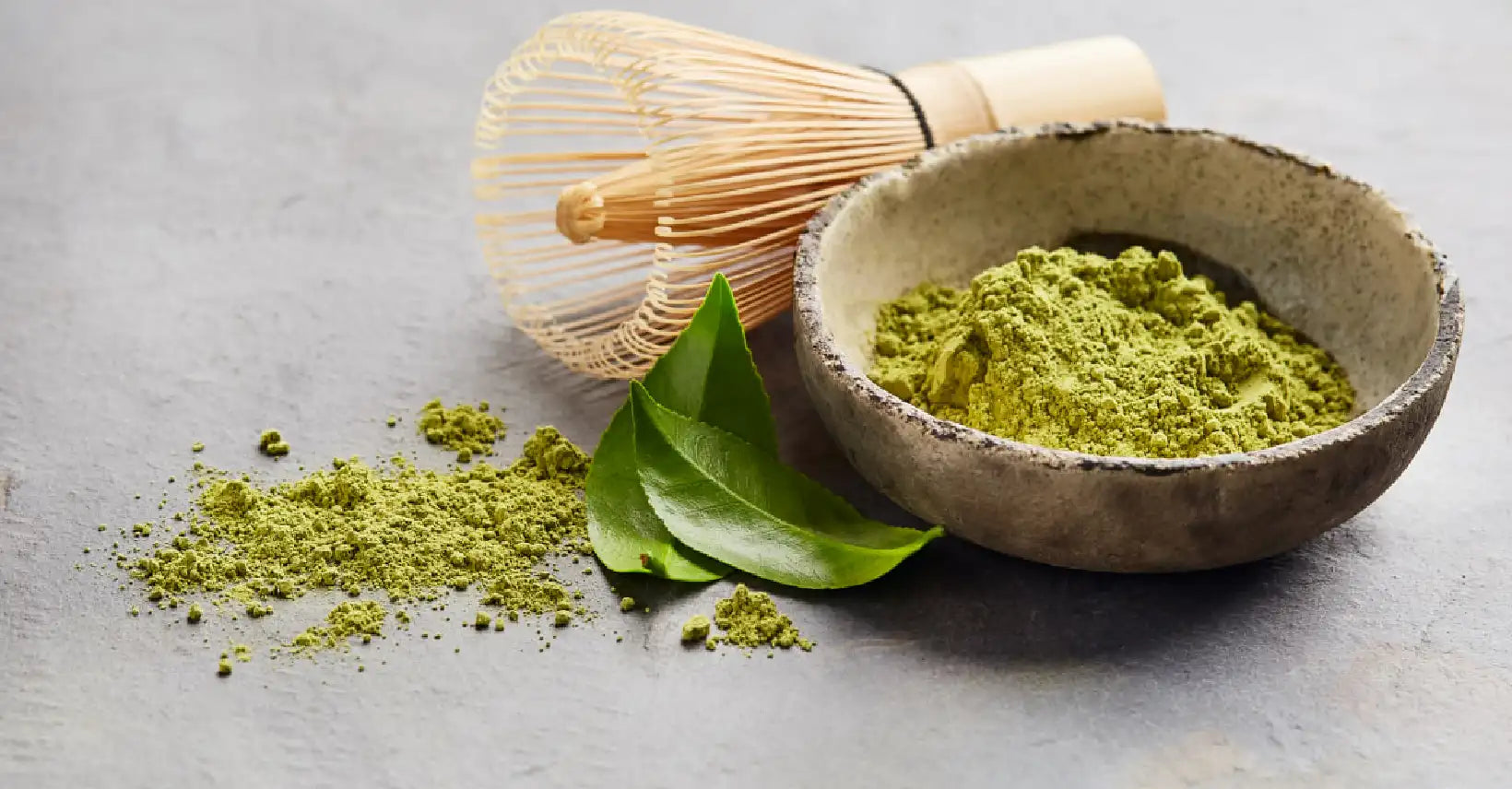Matcha is recognized as a good and pure energy drink and an excellent metabolism enhancer! But did you ever know? Matcha helps individuals gain weight as well! This may be needed by an athlete who has to develop muscle, someone who was lean and shed weight and wants to put the weight back on, or someone who simply wants to gain weight! Matcha provides a pure energy boost! The secret lies in the way we drink and what we blend into our matcha drink! Here, we discuss using matcha powder to put on weight, its unique nutrients, and some delicious recipes assisting individuals in putting on weight in a safe manner without consuming extra calories!
Starting your matcha journey with a good-quality product can help maximize results—don’t hesitate to buy matcha with the highest quality to try it yourself.
What is Matcha Powder?

Before diving into weight gain benefits, let’s understand what matcha powder actually is. Matcha is a powdered form of special green tea leaves. Unlike common green tea, in which the leaves are immersed and discarded, matcha allows you to consume the complete leaf. As a result, you receive numerous antioxidants, amino acids, vitamins, and nutrients. Matcha powder has been used in Japanese tea ceremonies for centuries and now individuals across the globe are consuming it for health due to its healing quality.
Can Matcha Powder Help with Weight Gain?
Matcha has fat-loss properties due to the acceleration of metabolism, but consuming it with high-calorie foods results in weight gain. Matcha contains reduced calories, but they contain significant components such as L-theanine and EGCG (epigallocatechin gallate), which regulate energy, enhance digestion, and minimize stress. These components make an individual feel more hungry and enable their body to assimilate nutrients efficiently. When combined with smoothies, oatmeal, or high-calorie baked delicacies incorporating healthy fats and protein, matcha serves as a potent ingredient for weight gain.
While this guide focuses on weight gain, matcha is also popular for its weight loss properties—learn more in Matcha Tea for Weight Loss.
Benefits of Matcha for Healthy Weight Gain
Placing matcha powder in your weight gain regimen doesn't require much fat or sugar—it's all about providing your body with good calories. Here's why it works so well:
- Boosts Energy Naturally – Matcha contains slow-acting caffeine and provides energy to perform exercises and other tasks without getting jittery. This enables you to move sufficiently in order to build muscle
- Enhances Nutrient Absorption – Matcha antioxidants may render your gut healthier, and this may enable your body to absorb nutrients better from high-calorie diets.
- Supports Muscle Recovery – Matcha minimizes muscle soreness after exercise, and you can train frequently.
- Improves Appetite Regulation – Maintaining your energy and alleviating stress can prevent loss of appetite due to fatigue or anxiety.
For a deeper dive into why matcha is considered a superfood, you might find our Matcha Green Tea Benefits blog interesting.
Best Ways to Use Matcha Powder for Weight Gain

In order to get weight with matcha, we need to blend matcha with nutritious food which contains a lot of calories. Here are some good ideas about this:
Matcha Smoothies & Protein Shakes
Blending whole milk or plant milk with matcha, nut butter, bananas, protein powder, and honey produces a beverage which contains many calories. These drinks are best taken before and after doing exercises.
Matcha Oatmeal & Breakfast Bowls
Add matcha powder to your oats in the morning. Sprinkle it with peanut butter, chia seeds, and dried fruit on top. This combination provides you with good carbohydrates, healthy fats, and protein in a meal.
Matcha Baked Goods & Desserts
You are able to prepare sweet treats such as matcha muffins and energy balls, which contain antioxidants. You can include coconut oil, nuts, and dark chocolate to render them more calorie-dense, among other alternatives.
Adding matcha to your diet doesn’t have to be boring—discover a variety of simple Matcha Recipes perfect for any time of day.
How Much Matcha Should You Consume Daily for Weight Gain?

1-2 teaspoons (2-4 grams) of matcha powder per day are ideal for most people. This will provide sufficient antioxidants and caffeine to keep you up but not jittery. You can have a smoothie in the morning and dessert or oatmeal before bed. If you are highly sensitive to caffeine, you may want to start with half a teaspoon and then take additional matcha powder throughout the day.
Precautions & Side Effects
Matcha is generally safe, but if you consume too much, it can lead to issues such as difficulty falling asleep, stomach upset, or headaches due to the caffeine. If you have heart complications, are anxious, or pregnant, speak with a physician before you consume matcha. Also, as matcha is extremely strong, always purchase high-quality ceremonial-grade or organic matcha to ensure that there are no chemicals that will harm you while consuming it.
Conclusion
Matcha powder for weight gain may not be the greatest thing to come to mind when thinking of weight gain, but it does come in handy when combined with high-calorie nutritious foods. You are able to blend matcha into energy-boosting smoothies or nutritious baked treats. It contains antioxidants, energizes you, and assists in building muscle—along with the added distinct earthy flavor of matcha.
FAQ
Is matcha good for weight gain?
Yes, especially when combined with calorie-dense foods like nut butters, full-fat dairy, or healthy oils. Matcha itself is low-calorie, but it supports overall health, energy, and digestion—making weight gain more effective.
What happens if I drink matcha every day?
Drinking matcha daily can provide steady energy, improve focus, and deliver antioxidants that support overall health. Just be mindful of caffeine intake to avoid sleep issues.
Does matcha help gain muscle?
Indirectly, yes. Matcha’s steady energy boost can help you perform better in workouts, while its anti-inflammatory properties aid recovery—both of which are key for building muscle mass.






1 comment
No author?